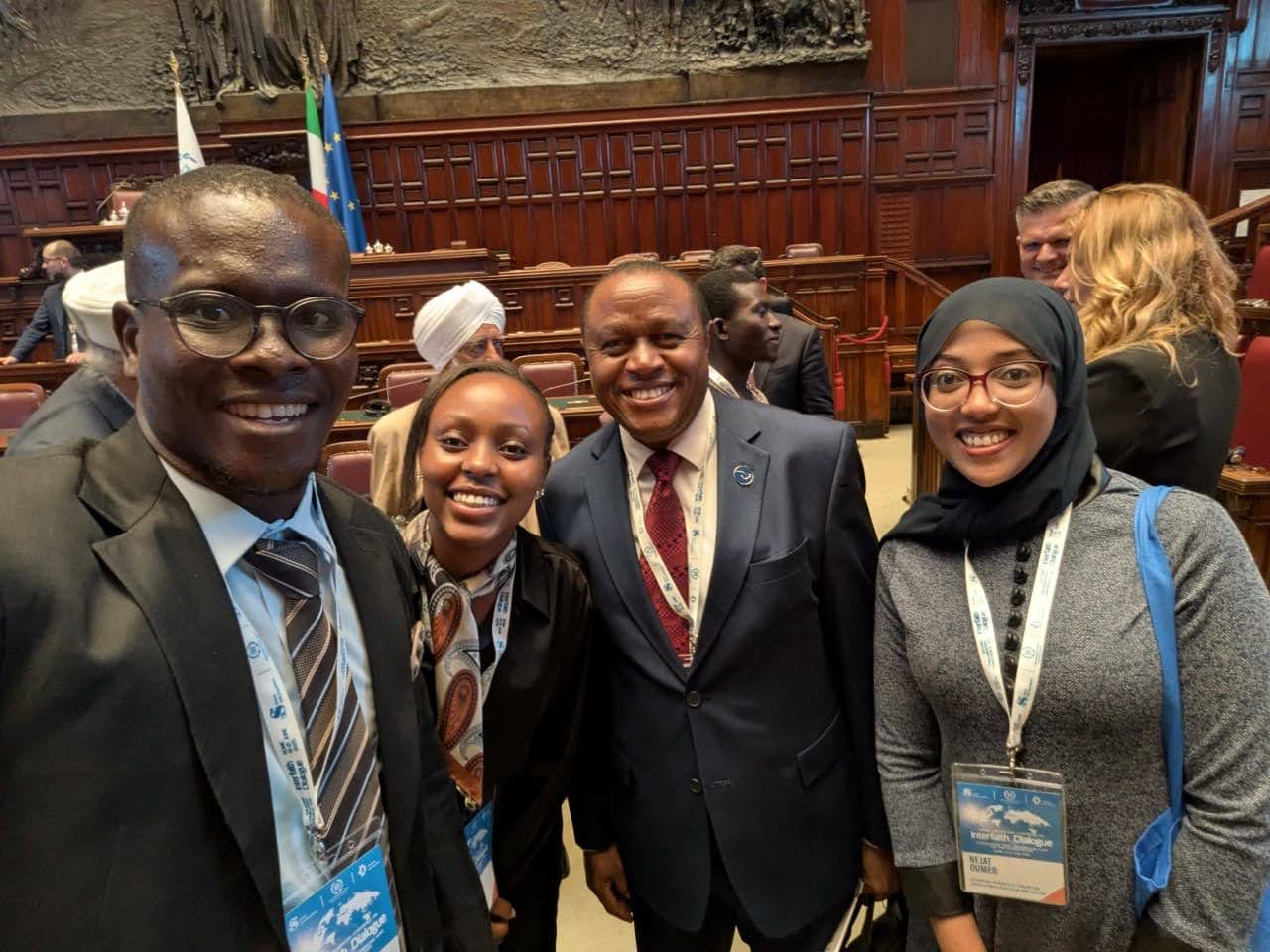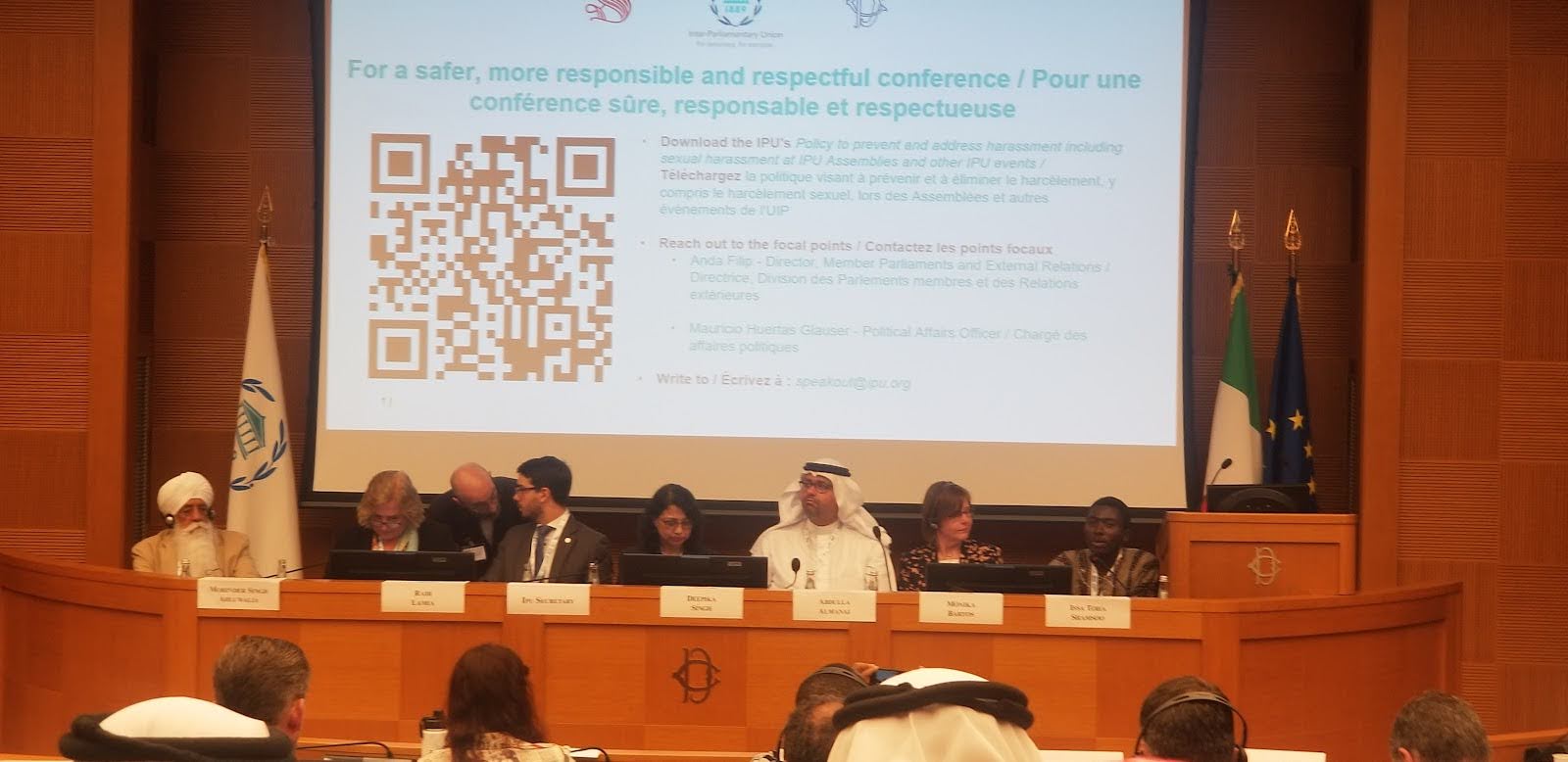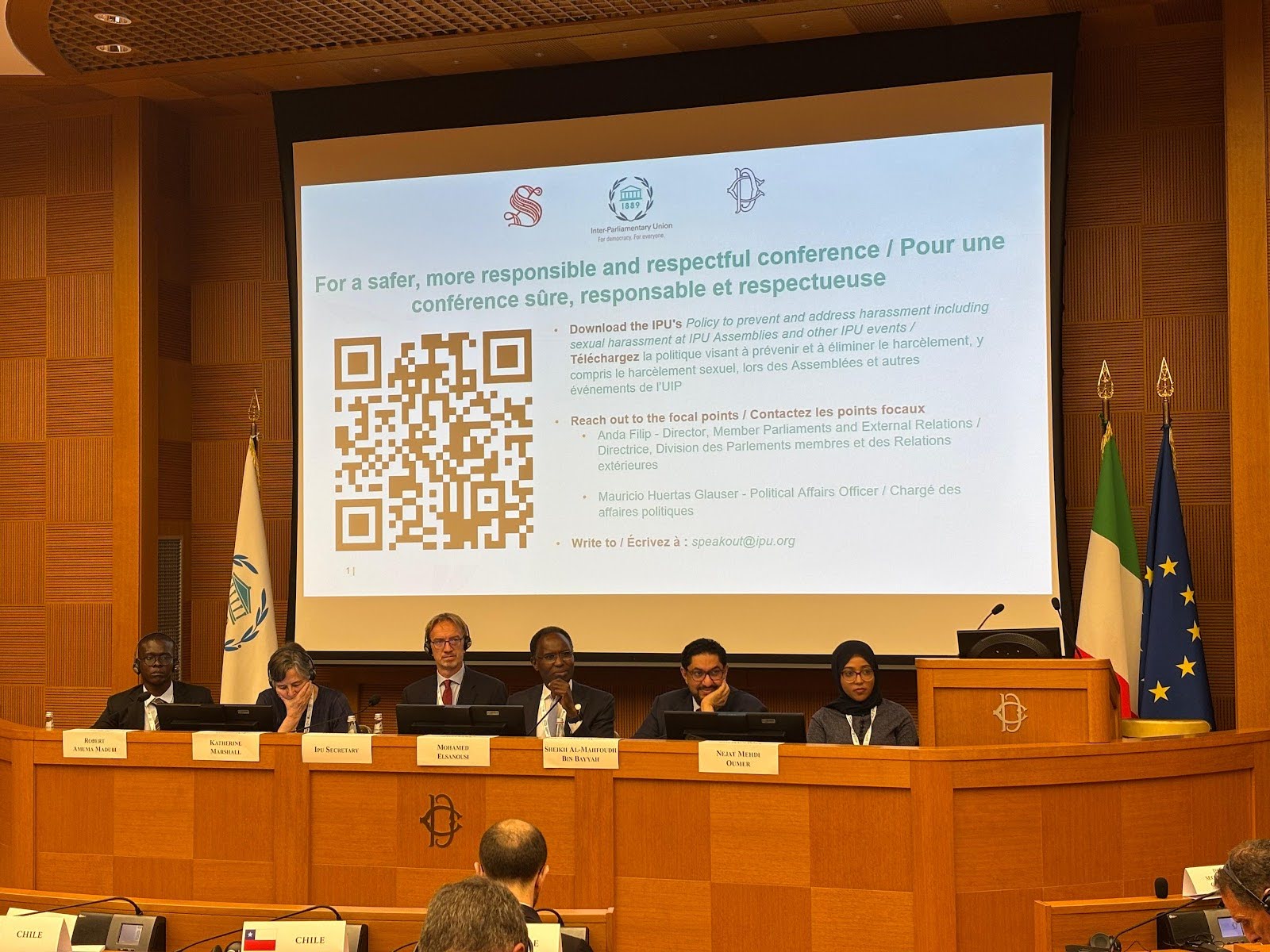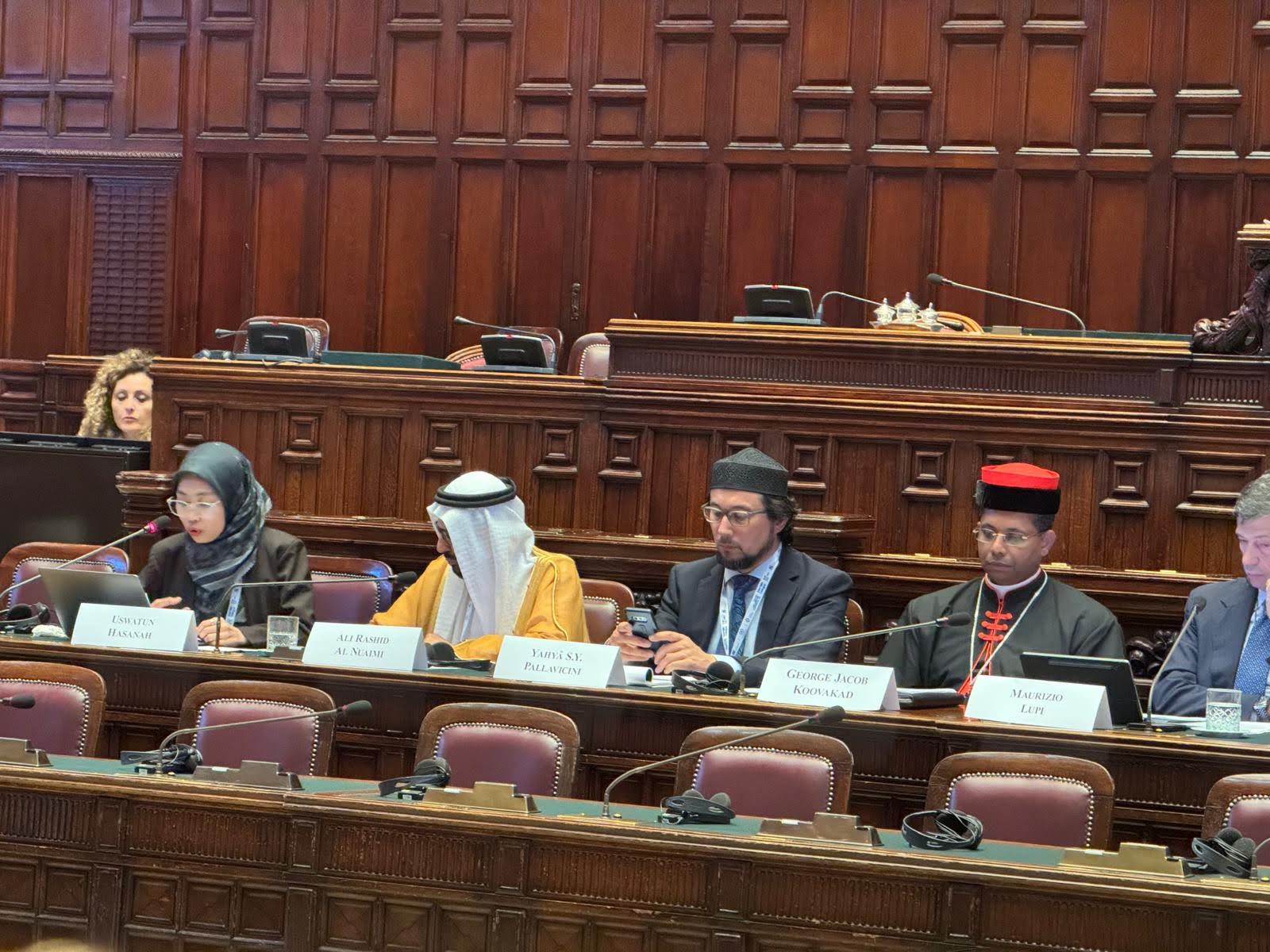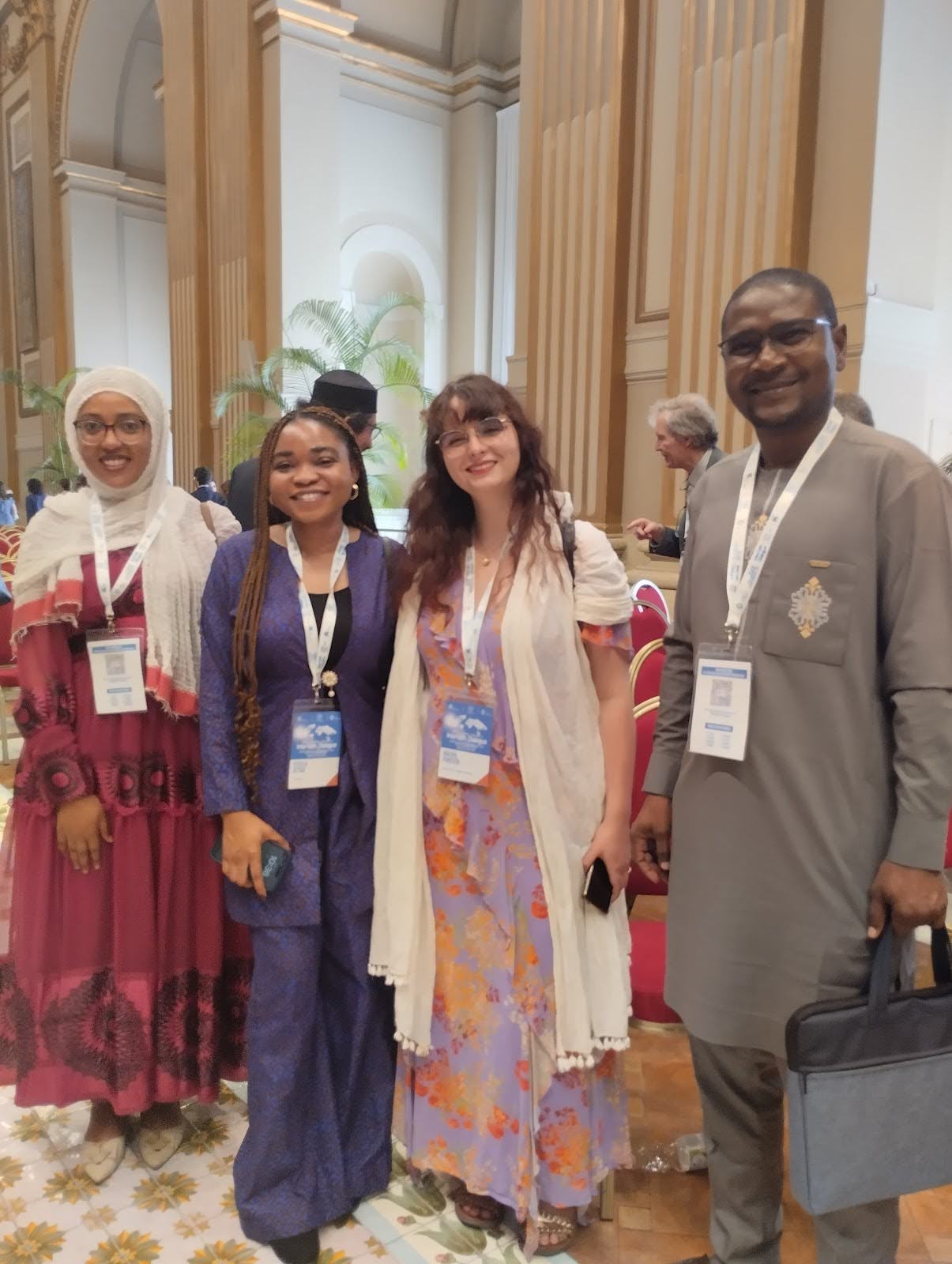Blog
From Ethiopia to Rome: Elevating Women and Youth Voices in Global Interfaith Dialogue
A reflection piece by Nejat Mehdi Oumer, Women and Youth Focal Person at the Ethiopian Interfaith Forum for Development, Dialogue, and Action, on her participation at the Second Interparliamentary Conference in Rome as part of the Dutch-funded ‘Joint Initiative for Strategic Religious Action’ (JISRA) project.
The official opening of the Second Interparliamentary Conference. Nejat and JISRA colleagues take a photo with the Secretary General for Religions for Peace. 2025.
I am honored to have participated in the Second Interparliamentary Conference (IPU) in Rome From 19-21 June 2025, themed around interfaith dialogue. This historic gathering brought together parliamentarians, religious leaders, faith-based organizations, civil societies, and most importantly, women and youth working at the grassroots level across the globe. The event took place in Italy’s iconic parliamentary hall, rich in history and significance.
‘Promoting Peaceful Coexistence’ panel. 2025.
The event began with two powerful pre-conference sessions. The first, Promoting Peaceful Coexistence, was moderated by Ms. Deepika Singh, Deputy Secretary General of Religions for Peace. Participants shared experiences from their countries on how to promote peaceful coexistence, what worked in their communities, and what areas still need change. I was especially moved by Mr. Issah Torrah from Ghana. As a young changemaker, he shared how bringing youth from diverse religious backgrounds together to lead peacebuilding efforts had a powerful impact. Seeing young people not just speak on behalf of youth but represent Africa with purpose filled me with pride. Ms. Rachel Foster from Search for Common Ground, closed the session with thoughtful reflections and strategic recommendations on behalf of young people.
‘Lessons from the Marrakesh Declaration Upholding the Rights of Religious Minorities’ panel. 2025.
The second session was Lessons from the Marrakesh Declaration Upholding the Rights of Religious Minorities. This panel offered deep discussions about the Marrakesh Declaration from those who were part of its development from the very beginning. Rooted in the Madinah Charter, established over 1400 years ago by Prophet Muhammad PBUH (Peace Be Upon Him), this declaration aims to protect the rights of religious minorities in Muslim-majority contexts. The conversation, moderated by Dr. Mohamed Elsanousi of the Peacemakers Network, was a living example of how faith can be a force for peace. His Excellency Sheikh Mohammed Bin Bayyah, one of the key architects of the declaration, delivered a memorable speech on countering extremism and Islamophobia with the phrase ‘‘Not in the name of my religion.’’ The dialogue also featured Professor Katherine Marshall of the Berkley Center at Georgetown University, who has contributed widely to interfaith dialogue and recommended uplifting human stories to bring these declarations to life.
I was humbled to speak on this panel, sharing the Ethiopian journey of interfaith women and youth through the Dutch-funded ‘Joint Initiative for Strategic Religious Action (JISRA) project. I highlighted how the idea of majority and minority religious groups can shift depending on time and place, and how anyone, anywhere, can become a minority. The discussion continued with Robert Amuma from Kenya Badili Tena Initiative, who offered bold recommendations and a heartfelt call to action to youth, religious leaders, and global policymakers.
High-level panel on ‘Countering Hatred Based on Religion or Belief: Deescalating Polarisation, Preventing Dehumanisation and Religious Weaponisation’ at the Chamber of Deputies, Palazzo Montecitorio – Plenary Hall. 2025.
The official opening took place at the Italian Parliament, with remarks from the leadership of the IPU, the President of Italy, representatives of Religions for Peace, and many others. Then we heard from parliamentarians, civil society actors, and religious leaders from across the world.
One high-level discussion titled Parliamentarians in Dialogue with Religion and Belief Strengthening Trust and Embracing Hope for Our Common Future, opened the floor to participants for thoughtful exchanges and reflections. Across several panels, we explored themes such as:
- Advancing inclusive societies and freedom of religion,
- Promoting ethical leadership and peace education,
- Interfaith dialogue for women’s inclusion in public life, and
- Supporting vulnerable communities.
Participants of the JISRA project. 2025.
In every session, the presence and contributions of women and youth, especially from JISRA-implementing countries, were truly remarkable.
To my colleagues in the JISRA project all over the world, thank you for your tireless work in empowering women and youth and amplifying their voices. I’m also deeply grateful to IPU, the Peacemakers Network, the Abu Dhabi Peace Forum, Religions for Peace, the African Council of Religious Leaders, Tearfund, Faith to Action Network, Search for Common Ground, and many others who are making this collective journey toward peace possible.
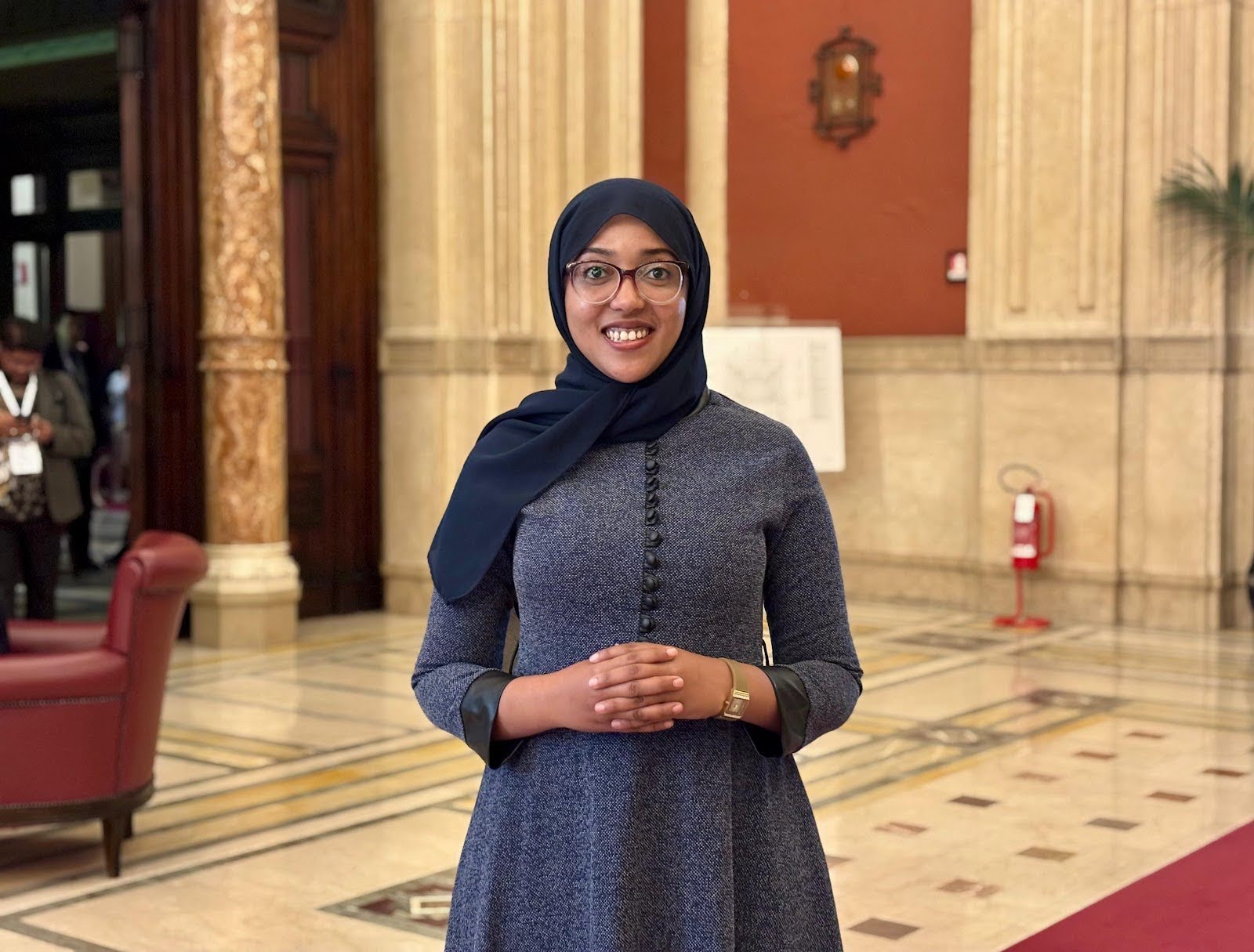
About Nejat Mehdi Oumer
Nejat Mehdi Oumer serves as the Women and Youth Focal Person and secretariat for Ethiopian Interfaith Women and Youth Networks at the Ethiopian Interfaith Forum for Development, Dialogue, and Action. With expertise in mediation, negotiation, and interfaith dialogue, she promotes gender equality and religious freedom and is committed to peacebuilding and environmental stewardship, creating inclusive platforms that foster empathy and collaboration within faith communities.
Follow the Network on social

